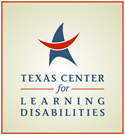Classification and Integration
Identifying individual children who meet criteria for learning disability (LD) has plagued research and practice since the origin of the concept of LD. In this project, we leverage the special statistical and clinical expertise of our team and advances in statistical computing and analytic models, simulation, and meta-analysis to continue and extend a long history of research on the classification and definition of LD. We evaluate the reliability of different approaches to identification; the validity of classifications based on intervention response; and the integration of research on classification, executive functions, and intervention.
Executive Functions and Attention
This project is designed to clarify the structure of executive functions and attention, examine how these processes interact with academic skills over time, and evaluate how to most effectively integrate practices for improving executive functioning and attention into remedial reading comprehension interventions.
Intervention
The purpose of this project is to conduct a series of randomized controlled trial studies to determine the efficacy of reading interventions for students with learning disabilities and reading difficulties. The current focus of the project is to investigate interventions for English learners with persistent reading difficulties.
Neuroimaging
The overall goal of this project is to develop a comprehensive model of brain network connectivity changes that relate to changes in academic skills.
Epigenetics
This project is a new initiative that moves TCLD into the field of genetics. Growing evidence, provided predominantly by animal model research, highlights the importance of dynamic change in the epigenome (or a system of genome activity regulation) in brain plasticity in general and learning in particular.
